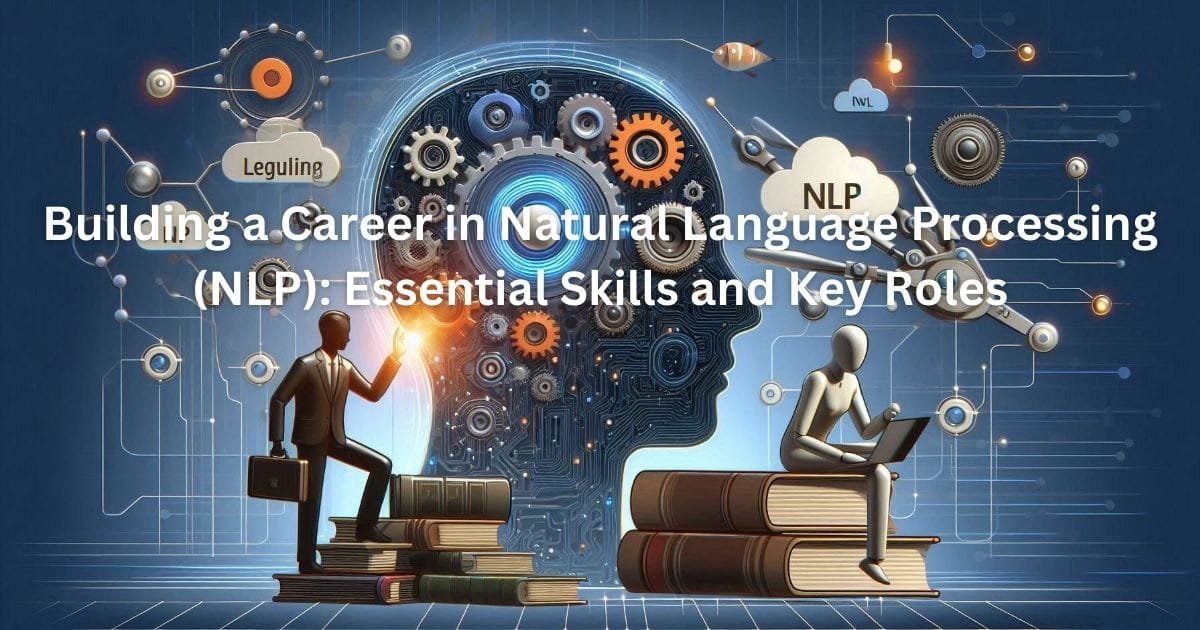

Natural Language Processing, or NLP, is a booming field in artificial intelligence (AI) that equips machines to understand, interpret, and respond to human language. Today, NLP applications are everywhere—from chatbots and language translation tools to more specialized areas like sentiment analysis, which helps companies understand consumer opinions. NLP is transforming industries and creating job opportunities for technical experts with these unique skills.
In this guide, we’ll explore the essential skills and key roles for anyone looking to build a career in NLP. From programming to linguistic knowledge, we’ll explore the mix of skills and job titles that define a successful path in this exciting field.
Strong programming skills form the foundation of NLP work, and Python is the most commonly used language in this field. Python offers several libraries and tools designed explicitly for NLP, such as:
In addition to these NLP-specific libraries, general machine learning frameworks like TensorFlow and PyTorch are essential for quickly developing and deploying NLP models. Some professionals also find knowledge of R and Java helpful for specific NLP tasks, such as data manipulation and application development.
A solid understanding of statistics and mathematics is essential for creating and refining NLP models. Many NLP models rely on probability and statistical concepts, such as:
Mathematical concepts like linear algebra and calculus are also crucial. They help professionals grasp how machine learning models intense learning models, process and interpret language data. This knowledge enables NLP professionals to create high-performing models that handle complex language tasks.
Understanding linguistics is a big plus for NLP professionals, as it helps design algorithms that work well with human language. Critical areas of linguistics that are useful in NLP include:
These linguistic insights are invaluable when designing natural language processing tools that respond intelligently to human input, making models more accurate and contextually aware.
Machine learning and deep learning are the backbone of NLP. Machine learning enables basic NLP models like text classifiers, while profound learning powers more advanced models capable of handling complex tasks like real-time translation or speech recognition.
Fundamental machine learning techniques used in NLP include:
Deep learning models are especially valuable in NLP. They excel at understanding context and producing human-like responses. With these models, NLP professionals can create powerful natural language processing tools for language translation and conversational AI tasks.
Data preprocessing is one of the most critical stages in NLP. Raw text data must be transformed into a format that models can understand and analyze. This process includes steps like:
Mastering data engineering skills like handling and visualizing data is also essential. Libraries such as Pandas (for data manipulation) and Matplotlib (for data visualization) help NLP professionals explore and optimize text data before modeling. Preprocessing and data engineering skills allow NLP models to perform accurately in real-world applications by refining data input.
As NLP natural language processing becomes more integral to businesses, specialized roles focus on different aspects of NLP. Below are some typical roles and their responsibilities:
NLP Engineer
Role Overview: An NLP Engineer is responsible for designing and optimizing systems that process and analyze language data. They typically work on tasks like sentiment analysis, language translation, and chatbot interactions.
Skills Needed:
Example Job: NLP GenAI Engineer at Tech Mahindra.
NLP Engineers combine programming and linguistic knowledge to create natural language processing tools that improve communication between humans and machines.
Machine Learning Engineer (Specializing in NLP)
Role Overview: NLP-focused machine learning engineers develop models tailored to language-based tasks. These models can be applied to speech recognition, text classification, and sentiment analysis.
Skills Needed:
Example Job: Architect – Machine Learning Innovation at Pepsico.
Machine learning engineers specializing in NLP apply their knowledge to language data, creating models that understand and respond to human language with increasing sophistication.
Data Scientist (NLP-centric)
Role Overview: A Data Scientist with an NLP focus applies data analysis and machine learning techniques to extract insights from language data. They may work on building predictive models and analyzing sentiment or trends within text data.
Skills Needed:
Example Job: Machine Learning Data Scientist – NLP at NextQuarter.
NLP Data Scientists bridge the gap between data science and NLP by analyzing text data to support business decisions and model development.
Building a career in NLP natural language processing is an exciting journey that combines programming, linguistics, machine learning, and data engineering. To succeed, professionals need a blend of technical skills—such as programming with Python, understanding statistics, and mastering machine learning algorithms—and a good grasp of linguistics to make language data more accessible to machines.
Whether you aim to become an NLP Engineer, a Machine Learning Engineer specializing in NLP, or an NLP-centric Data Scientist, the field offers diverse roles that contribute to advancing language technology. With the growth of NLP, skilled professionals can work on groundbreaking projects, reshaping how we interact with machines making a career in NLP both rewarding and impactful.






Welcome to IT Business Digest, your ultimate source for the latest information technology news and updates. Stay ahead with our in-depth coverage of emerging technologies, industry trends, and expert insights.